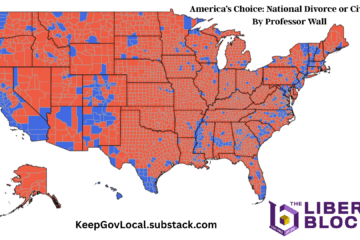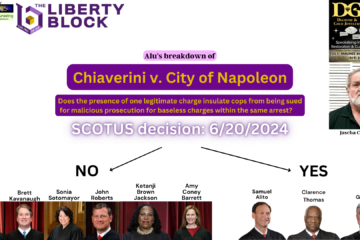The financial strength of a nation is like an ocean tide — it ebbs and it flows. The tide had been rushing in for a while now, but the COVID-19 pandemic is poised to upend all that progress, already sending stocks plummeting amid uncertainty and fear. As a recession seems inevitable, how will states fare? The picture for many, unfortunately, is bleak. According to Moody’s Analytics, 20% of states would struggle to make ends meet in even just a moderate recession.
Planning for the worst, then, is just common sense. Given the sweeping impact the COVID-19 pandemic is expected to have, states lacking adequate funds to weather recessions should cut costs now. Cutting — or cutting back on — unnecessary programs would be a quick way to free up money to bolster necessary services and put states — and more importantly, citizens — in a better position to ride out the storm.
Unnecessary government programs typically fall into two categories: those better provided by the private sector, and those the government shouldn’t be involved in to begin with. Programs and services better provided by the private sector are those that private firms can offer at a lower cost, or perform more efficiently. Fortunately, this is already happening. Simple problems like potholes are being fixed by pizza companies, if you can believe it. And more complex problems like air quality are being addressed by massive corporations like WalMart. Like has happened in these cases, companies can do well by doing good.
Creating Shared Value
This philosophy, dubbed “Creating Shared Value” by Harvard Business Professor Michael Porter, reduces the strain on government and strengthens the economy by providing mutual benefit for citizens, industry, and governance. Empowering communities and localizing authority can help promote stability and better service delivery for citizens.
Advocates of bad programs have argued for higher taxes to maintain them, but states can’t tax their way to prosperity. And raising taxes exacerbates the problem both leading up to and during a recession. For example, higher-taxed states lose more people to outward migration. Those who remain are left with an unsustainable system. Indeed, Moody’s report specifically calls out high-tax states, saying: “states that rely the most on commodities and very progressive income taxes experience the most potential stress.”
Smart financial planning is a proactive and preventative measure. Lesser risk of credit downgrades could prevent a slide into a major recession and help protect poor and vulnerable Americans. Because during recessions, states will take on extra debt, raise taxes, and otherwise risk long-term financial stability. Also, the quality of services may decrease as the financial pressure builds. Those kinds of decisions compound a recession’s negative effects and contribute to greater ones.
Nevertheless, governors and state legislators continue to push for expansion of their pet programs. Governing bodies rarely give up power, even when the results for citizens could be better and more cost efficient. Times have been good, but the effects of the COVID-19 pandemic are expected to do significant damage to our economy — and indeed already has in many states. Protecting people, then, means providing stable and reliable services that add value without increasing risk. Responsible governance in at-risk states requires cutting back on unneeded programs before payment on the bill is due.


